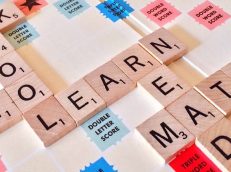Most students have been interested in biology at some point during their school years. Their curiosity about the natural world is a driving force that makes them curious about the subject.
Biology builds on basic skills of reading and writing in math and science that are taught in earlier grades. It also builds on concepts from previous courses such as chemistry, physics, and earth science.
In high school, biology is a broad subject that covers many topics and areas of study. Also, it includes study of how organisms interact with each other and their environment.
Biology includes study of how genetic traits developed over time. In addition, it covers the effects on humans caused by environmental changes that occur as a result of human activities.
Biology is an important discipline to learn at all levels of education because it teaches students how to think logically and creatively. It also encourages critical thinking skills that help students recognize and solve problems in their everyday lives.
What is the purpose of the Biology in high school?
The Biology course serves as an introduction to concepts that apply to many other disciplines.
It builds on skills learned in previous courses and encourages students to think critically about how biology affects their lives. Also, it requires students to think about possible future careers in biological fields.
Biology stresses the scientific method of study. In terms of which is a structured approach to research and problem solving.
In addition, students are required to think about how their own behavior impacts their health, the health of friends, and the environment.
Students will study biology at the molecular, cellular, organism, and population levels. They will also be required to learn human biology and how it applies to our everyday lives.
Students will learn about living things as they relate to each other in their local community or ecosystem. Also, the course includes learning about biochemistry and the effects of environmental change on organisms in an ecosystem.
It also includes study of genetics such as genetic modification (GM) techniques used by plants and animals to improve their growth rates and success rates when facing a disease or environmental challenge.
Students will learn about microorganisms, plants, animals, and humans from a variety of perspectives that include cultural, historical, philosophical, religious/moral and economic aspects.
What are some common topics covered in this class?
The Biology course covers a broad area of topics:
Genetics
DNA and genes, chromosomes, and the process of reproduction. Also, DNA and genes, chromosomes, and the process of reproduction.
Cell biology
Cells, organelles, membranes, cell walls, cytoplasmic structures, functions of the nucleus. Cells, organelles, membranes, cell walls, cytoplasmic structures, functions of the nucleus.
Biochemistry
Chemical processes that occur inside cells including food intake/digestion; transport through body (blood); respiration; excretion; energy production (glucose metabolism); protein synthesis; synthesis of carbohydrates.
Chemical processes that occur inside cells including food intake/digestion; transport through body (blood); respiration; excretion; energy production (glucose metabolism); protein synthesis; synthesis of carbohydrates.
Genetics
Genes and genetic traits expressed in descendants. Genetic traits are passed on from generation to generation.
Additionally, chromosomes and how they contain genetic information within their DNA molecules to control human development from fertilization to birth.
Ecology
The relationship between living things and their environment. Types of ecosystems including terrestrial, freshwater, marine, and estuarine.
Environmental conditions that affect living things including heat, light, water supply, oxygen levels, food supply, predators/prey relationships.
Evolution
Change over time in the genetic makeup (genotype) of a population due to natural selection or other selective force (e.g., reproduction).
In biology as applied to humans this is referred to as human evolution. Evolutionary history of life on Earth.
Microorganisms
Types including bacteria, fungi, and viruses. Bacteria classification and function including spore formation. In fact, viruses classification and how they affect host cells using the lytic cycle or the lysogenic cycle for reproduction.
Plants
The parts of a plant including roots, stems, leaves, flowers (and seeds), with emphasis on the functions of each part (e.g., photosynthesis).
Ecological relationships between plants and animals within an ecosystem including pollination by animals/insects and seed dispersal by animals/insects.
Also, plants as providing food to humans: cereals, fruits, vegetables, nuts, tea, coffee.
Animals
Animals systems such as skeletal system (bones), muscular system (muscles), nervous system (brain and spinal cord).
Additionally, animals that have backbones called vertebrates are classified under the phylum chordata; examples include fish, amphibians (salamanders), reptiles (snakes), birds (eagles), mammals (dogs) and humans.
Animals that do not have backbones are called invertebrates;
examples include insects such as bees or butterflies; arachnids such as spiders; mollusks such as squid (cephalopods); annelids such as earthworms; echinoderms (sea urchins and starfish); and tunicates (sea squirts).
Cudy strives to assist students in achieving their academic objectives. When you register on Cudy as a student, you will be able to learn from the best tutors online. Based on your place, the course you're taking, and the subjects you need help with, you'll have the simplest time finding a tutor.






